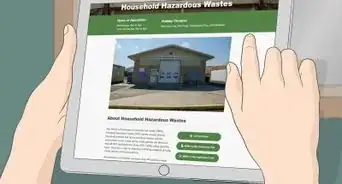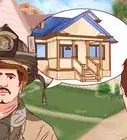X
wikiHow is a “wiki,” similar to Wikipedia, which means that many of our articles are co-written by multiple authors. To create this article, 26 people, some anonymous, worked to edit and improve it over time.
This article has been viewed 265,438 times.
Learn more...
Experiencing a house fire is a frightening, sickening, and very upsetting experience. In the aftermath of a fire, it is very important to know what to do to protect yourself and others from any possibility of further harm. This article will help you with key things to do and know after a fire.
Steps
-
1Ask when it is safe to enter a house or other building on the property after a fire. Do not enter a house or other building that has been affected by a fire until you have listened to the professionals telling you that is okay to do so. Other factors to be aware of include:
- making sure that the fire is extinguished
- knowing that fire authorities have checked out the site and done what they need to do to establish a safety zone
- the severity of the fire
-
2Recognize that if a house or building is too badly damaged, you may not be allowed back inside at all.Advertisement
-
3Know who to call after a fire.
- Contact family members that may not have been with you. Let them know what happened, let them know that everybody is okay (if so) and let them know the information that is necessary.
- After a house fire, don't assume that someone is going to contact your insurance. This is the number one thing that you need to do. This will not only enable documentation of the event and set in train the insurance claim but your insurer will be able to talk you through emergency lodging and living expenses. Remember to retain all receipts to make a claim.[1] The insurance company will also assist with clean up options.[2]
- If you are a tenant, contact the owner/landlord and/or their insurance company.
- Anyone who you feel that could be helpful to you, not necessarily just an insurance company but it could be other things involved, such as the contents of your home and you need to contact a particular help group or business etc. For example, American Red Cross offers services to those who have lost their home.
-
4Understand what happens with a "fire report". A fire report will discuss what structure the house was in, what area was involved, the time of the incident, the date of the incident and it will have an incident number if it comes through a fire department. This enables the fire department to know all the specifics of who was there and what resources were there, to assist in gathering a lot more information.
-
5Know how to get a copy of a fire report. You may be able to call the fire department for a copy. For example, in Los Angeles, you can call the Fire Prevention Bureau, the Fire Marshall or the billing agency of the fire department. If arson is involved, the Arson Unit or equivalent will probably be able to get this information to you.
-
6Secure the property. If you have not already being told to do so, it is important to secure your property to prevent possible looting. Talk to emergency services on how best to go about this. Most insurance policies require this.[3]
-
7Consider the clean up requirements. If your house has been damaged rather than destroyed, interior clean up will be required. Keep in mind that damage to the property often goes beyond what the eye can see. (Removal of a destroyed house should only be done by professionals.) You should spend a little time assessing whether you think you can perform the clean up or if you'll need professional cleaners. You will find it useful to discuss this with your insurance company. Consider such things as:
- The types of damage including soot, ash, charring, smoke, odor, etc.
- Damage to a single room - this may be something you can manage yourself
- Extensive damage - leave it alone and call in the professionals[4]
-
8Know how to handle smoke and soot damage after a fire. If you do make the decision to clean up yourself, be aware that soot and smoke damage might be significant and often creates a film on the walls. There will also be residue from the extinguishers used by the fire crew.
- Soot - while there are many cleaning products available on the market, one of the most common is "TSP" or tri-sodium phosphate. Mix it with water according to the instructions and use a sponge. Wipe down the walls and let it dry.
- Extinguisher residue - use a shop hired vacuum to remove the residue and any remaining dry soot.[5]
- Furnishings such as carpets, rugs, curtains etc. are best cleaned professionally if they are even salvageable.[6]
- Open all doors and windows if possible. Even if it is freezing cold outside, let small bursts of fresh air circulate through. Send the kids to a friend's house for a bit while this is happening. They should not be around anyway, for fear of the potential for ingestion of chemical particles or other particles that might damage young lungs and immune systems.
-
9If water hoses were used to put out your fire drying your home is very important. It is best to hire professionals to do fire/ water combination clean up. Water damage can lead to more damage or even mold if not dried properly. Insurance companies will often have approved restoration contractors that you can call for board up, structural drying, contents cleaning and structural cleaning and repair. BBB and Angie's List are also good places to find trustworthy contractors.
-
10Seek counseling if needed and reassure children. Having your house damaged or destroyed by fire is extremely traumatic and can have lasting impacts on each family member, depending on his or her ability to cope. Common feelings are helplessness, disorientation, pining for belongings, deep sadness, a sense of deprivation, despair and a loss of routine and structure.[7] The depth of feelings and disorientation will depend on the extent of damage - loss of the entire house can leave everyone feeling as if they have to rebuild life all over again; partial loss, however, still carried stress and sadness. Reassure each other and let the emotions happen. Keep a close eye on children and be truthful with them about what has happened and if you do not know what is going to happen next, at least reassure them that you have one another, that things can all be replaced and that the only way is up from here on.
Advertisement
Community Q&A
-
QuestionHow long does it take for a whole house to be on fire?
 Community AnswerIt can be as fast as 30 seconds for a house to be covered in black smoke so you can't breathe, and two minutes until it's so hot that everything combusts. Modern houses filled with modern materials tend to reach flashpoint much faster than older houses with older materials inside. Watch YouTube videos showing flashpoints to get a really good idea of how fast fire moves.
Community AnswerIt can be as fast as 30 seconds for a house to be covered in black smoke so you can't breathe, and two minutes until it's so hot that everything combusts. Modern houses filled with modern materials tend to reach flashpoint much faster than older houses with older materials inside. Watch YouTube videos showing flashpoints to get a really good idea of how fast fire moves. -
QuestionWhat is the best way to select a company to come and do clean-up? Do the insurance companies choose or do I have a say?
 Community AnswerAsk your insurance carrier who to use and search for yourself. Get estimates for property removal, cleaning, and storage. Ask for references to check their customers' experiences with their service. Ask your agent what your policy covers. Find out how the clean-up company will be paid: direct from your insurance carrier or out of your personal property claim. Be careful with items too damaged to clean, some companies will try anyway wasting your money.
Community AnswerAsk your insurance carrier who to use and search for yourself. Get estimates for property removal, cleaning, and storage. Ask for references to check their customers' experiences with their service. Ask your agent what your policy covers. Find out how the clean-up company will be paid: direct from your insurance carrier or out of your personal property claim. Be careful with items too damaged to clean, some companies will try anyway wasting your money. -
QuestionWhat if the fire started on the electric box in the house? Does the municipality fix the burnt house or what?
 Community AnswerNo, even when fault can be assigned to a municipality, they are not going to give funds to help citizens recover. It's an accepted risk we all unknowingly agreed to for city provided utilities, it's actually in the fine print we tend to not read when signing up for services. Be sure to have insurance coverage or a cheap house that is cheap to rebuild.
Community AnswerNo, even when fault can be assigned to a municipality, they are not going to give funds to help citizens recover. It's an accepted risk we all unknowingly agreed to for city provided utilities, it's actually in the fine print we tend to not read when signing up for services. Be sure to have insurance coverage or a cheap house that is cheap to rebuild.
Advertisement
Warnings
- Never assume that clean up companies were sent by your insurance company, there are a lot of Fire Truck Chasers out there.⧼thumbs_response⧽
- Always secure your own valuables: Jewelry, Photos, Money, whatever you cannot replace. Once the restoration company has it, it's theirs until they receive payment, they have all the leverage.⧼thumbs_response⧽
- If you do the clean-up by yourself, wear a mask to filter the air you breathe, wear strong cleaning gloves and wear thick-soled boots. You do not know what you may tread on or touch that is broken, spiky or chemical ridden, so prudence is paramount.⧼thumbs_response⧽
Advertisement
References
- ↑ Coj Net Fire & Rescue
- ↑ This Old House After a Fire
- ↑ Coj Net Fire & Rescue
- ↑ This Old House After a Fire
- ↑ This Old House After a Fire
- ↑ This Old House After a Fire
- ↑ Stern, P N and Kerry, J Restructuring Life After Home Loss By Fire
About This Article
Advertisement
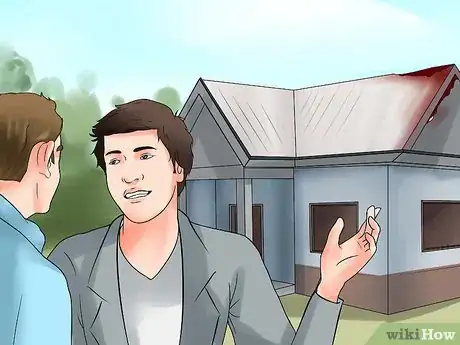
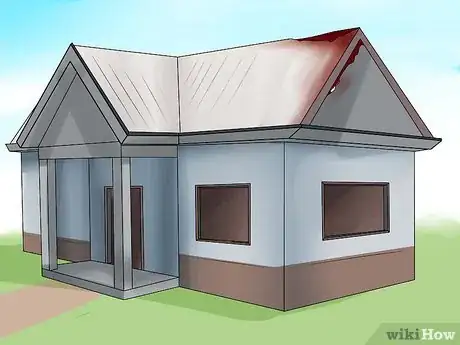
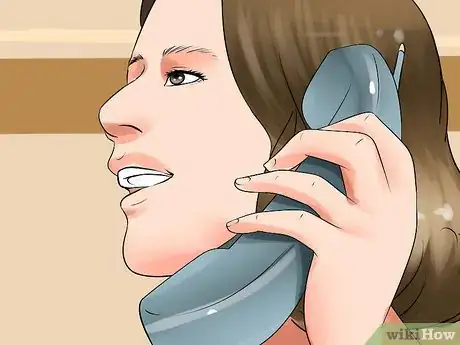


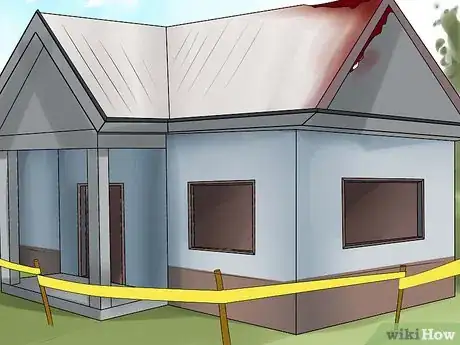
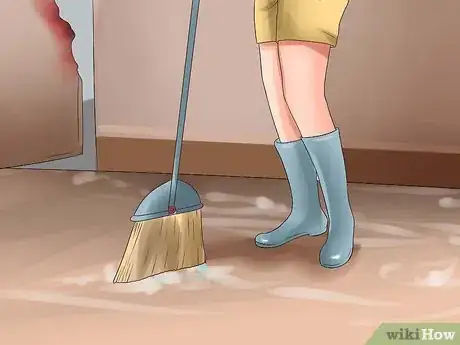
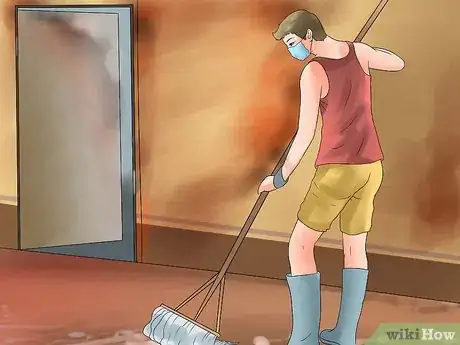
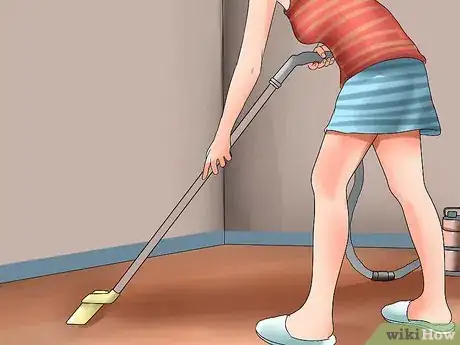




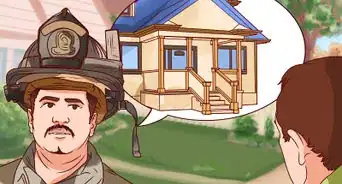
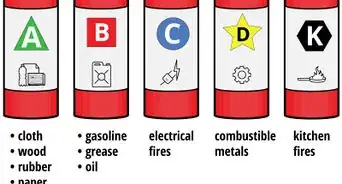
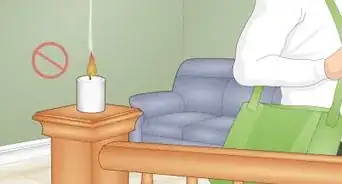
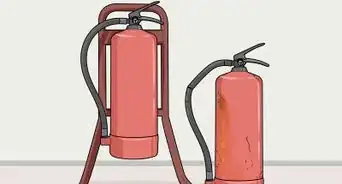

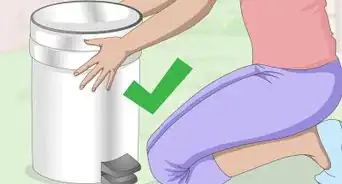


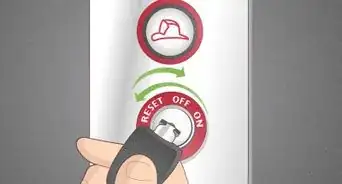
-Step-11-Version-2.webp)
